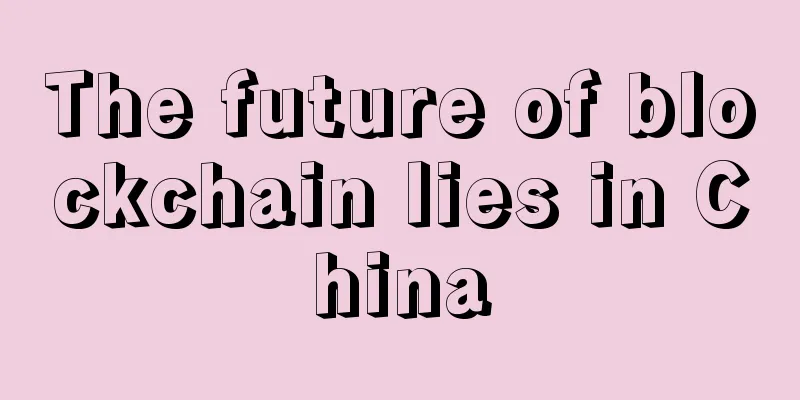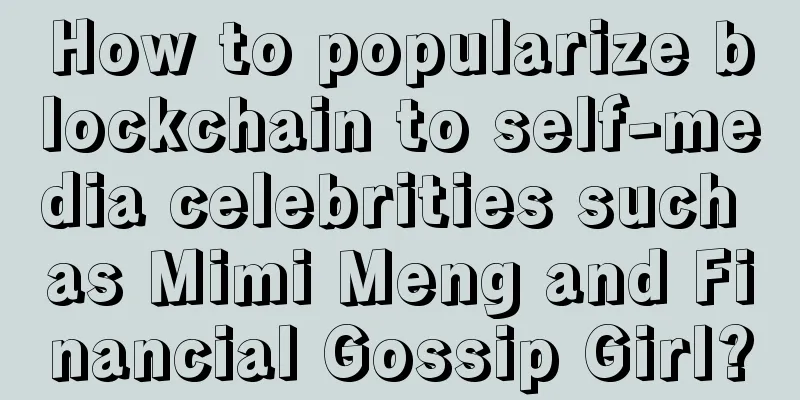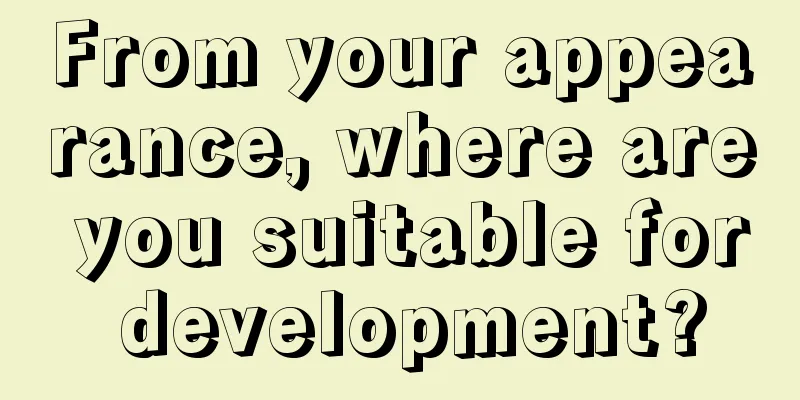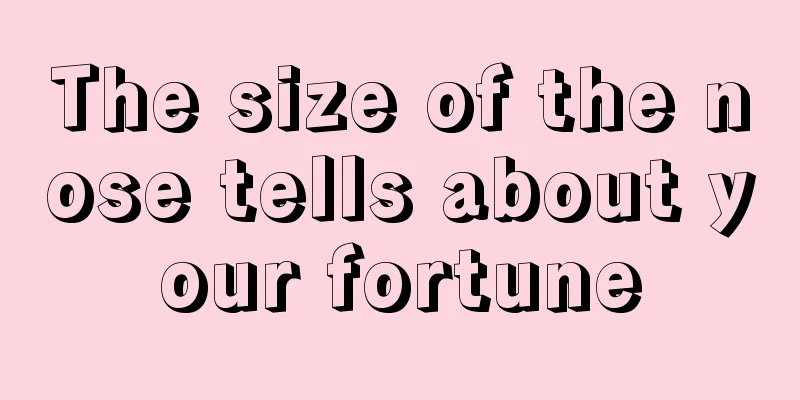The future of blockchain lies in China

|
0 1Is there a future for blockchain? This is a manuscript that has been in my stomach for a long time. Friends often ask me why Mankiw is so determined to choose blockchain as his industry direction. Isn’t it forbidden in China? Is it really possible for you to provide legal services in an industry that is not allowed? To be honest, it is precisely because many colleagues and even friends in the blockchain industry hold this view that it becomes more and more promising for us. The Earth may be flat, but it's still got some hills. As a new thing, blockchain technology has only been around for 14 years, and its development has been full of twists and turns, not only in China but also around the world. Since its birth, China's supervision of blockchain has always been making positive progress, although such positive progress has been achieved by constantly drawing up a negative list. I often repeat to my friends these three negative lists for the development of blockchain in China:
Apart from the above three points, there is absolutely no problem in conducting blockchain-related business in China. Many people's understanding of blockchain is limited to virtual currency, and they think that China's denial of virtual currency is a denial of blockchain. However, virtual currency is only a scenario in the early development of blockchain technology. China's restrictions and denial of virtual currency in China are paralleled by its encouragement of blockchain technology. This is an important premise for understanding blockchain entrepreneurship in China. There are many places to start businesses related to the concept of blockchain. Compared with the application scenarios and value of blockchain in the commercial society, it is not an exaggeration to say that China's three negative lists for virtual currency are a drop in the bucket. If you are a blockchain entrepreneur and you are not doing well and not making any money, and you blame mainland China for not welcoming blockchain and not allowing you to issue coins and raise funds, that is really nonsense. There is a classic scene in Zhao Benshan's "Country Love" where the silly son complains to his father that he can't do things well because of the bad environment. Uncle Benshan comforted him: If you don’t have the ability, just say so. Don’t always say that the environment is bad. Why is the environment bad wherever you go? You are the one who destroys the environment! 0 2What will happen in the next ten years? As the saying goes, watch ten years, work one year. A few days ago , I was chatting with Mao Jiehao, a lawyer from Mankiw's team, over tea. I said that I have been thinking about a question recently: What will the blockchain industry be like in 10 years? More importantly, what will China's blockchain industry be like? I have a few bold guesses, which are quite irresponsible: 1. In 2023, the industry's big institutions and hottest projects may all be out of business, including a certain An and a certain Taifang, just like Yinghaiwei in Beijing in 1995. 2. Bitcoin will either become a regular target of alternative asset allocation and its price will slowly grow to more than $100,000 (this does not constitute investment advice!), or it will completely return to zero. 3. Stablecoins will become the first choice for cross-border trade and cross-border remittances. Mainstream social media and financial institutions will successively launch their own stablecoin systems. The global currency war in the Web3.0 era will continue to be secretly played between China and the United States. 4. Security tokens have matured, but the path is not for tokens to become securities, but for securities to become tokens . Mainstream stock exchanges including Hong Kong stocks and A shares will choose to use blockchain as the underlying technical support, and debt-type tokens corresponding to RWA are emerging in an endless stream. 5. Both the East and the West will have crypto-financial centers launch regulatory sandboxes, allowing blockchain startup teams to issue tokens to raise funds/issue bonds through a registration system, but there will be limits on the amount of funds raised and investors, and only compliant funds or compliant investors will participate in subscriptions and transactions. 6. Functional tokens will become the standard for most Web3.0 applications, just like wallets and points in the Web2.0 era. Functional tokens do not have the function of fundraising, but are only used for user incentives and network data circulation. The circulation of cross-project and cross-chain functional tokens will become a trend, whether it is led by the government or initiated by a third-party commercial organization. 7. NFT will become a standard feature of online social networking, online games, and e-commerce. People will no longer deliberately emphasize the use of NFT to promote the real through the virtual. Visible and intangible digital commodities will become a very normal existence in daily consumer goods. 8. More importantly, the above speculations are likely to happen in China. 0 3 The future of blockchain is in China In the process of communicating with many Chinese blockchain entrepreneurs, I found that many fledgling blockchain entrepreneurs have a bad habit of "looking up" to overseas project parties and entrepreneurs. Some people have even come up with a chain of contempt in the blockchain world: roughly speaking, blockchain project owners and practitioners in the European and American markets look down on those in Southeast Asia and Hong Kong, and entrepreneurs and practitioners in Southeast Asia, Hong Kong and Singapore look down on those in mainland China. If you ask the friends at the top of the contempt chain where their sense of superiority comes from, they often can't even say 123. This phenomenon is indeed a bit unbelievable. It's really not necessary to go so far as to despise the predecessors in the industry by adding a 1 after the value of Web.. The bad habit of mistaking the dividends of the times for one's own ability has nothing to do with Web. In the early stages of development, an emerging technology should not engage in infighting on the contempt chain, but should truly find ways to solve social problems, find real business application scenarios, create business value, and survive by making money by serving customers or users. It is really meaningless to compete in creating technological concepts or to see who can get up in the middle of the night to do market value management. Empty talk will ruin the country, but hard work will make the chain flourish. Web3 entrepreneurs need to look up to the stars, but more importantly, they need to keep their feet on the ground. Don’t step on the land of China, and always think about the empty narrative of pushing concepts in overseas markets. This is why I have always advised Chinese entrepreneurs not to pay too much attention to RWA and DAO. To be honest, I think that as a Web3.0 blockchain entrepreneur, being able to be in the Chinese market is absolutely a lucky thing. The reason for this judgment is based on my personal experience as a former Web2.0 entrepreneur: 1. China has accumulated Internet infrastructure that is far ahead of the rest of the world in the Web 2.0 era. Whether it is software, hardware or O2O, the upstream and downstream industrial chains of the Internet industry are very complete. The Chinese government has obviously tasted the sweetness of the dividends of the Web 2.0 era. China will definitely not give up its leading position in the world's first-tier Internet. 2. China has the best Internet product managers and operation talents in the world. You can say it is hardworking or involutionary, but it is undeniable that China has the absolute leading number of excellent Internet talents in product design, user experience, traffic acquisition, and commercial realization. Although the people who are currently making money and working on projects in the market are all European and American faces, at least half of them are Chinese. The blockchain world cannot do without Shenzhen and Hangzhou, just like the West cannot do without Jerusalem. 3. China has a population of 1.412 billion, and the number of mobile Internet users is 1.2 billion. Such a unified large market will attract the envy and jealousy of Internet project developers in other countries and regions. Moreover, this unified large market is protected by an invisible wall. Don’t let blockchain entrepreneurship become a wall. Chinese entrepreneurs want to go out, and foreign entrepreneurs want to come in. Therefore, Chinese entrepreneurs do not need to feel too ashamed of themselves, do not belittle themselves, and do not always think that one can learn from others' experience to polish one's own jade. You should know that it is true that the early days of the previous generation of the Internet were C2C (Copy2China), but the story of China's Internet going overseas in the second half is more convincing. |
<<: Why did Visa choose Solana, which has been "reborn from the ashes"?
Recommend
What Impact Will the US Infrastructure Bill Have on the Country’s Crypto Mining Industry?
Written by: Ariel Zetlin-Jones Source: Cointelegr...
How to tell a person's temper from their eyebrows
Eyebrows are called the colorful canopy of the ey...
What are the facial features of a philandering man?
What are the facial features of a philandering ma...
What are the facial features of a sinister person?
Some people like to disguise themselves very much...
How does a person with a strong temper look like? Analysis of a person with a strong temper
People with a violent temper usually have the app...
Blockchain technology will become mainstream within the next decade
Deutsche Bank believes that blockchain technology...
US regulators believe that stablecoins bypass regulatory loopholes and are studying how to regulate stablecoins
On September 20, it was reported that U.S. regula...
How to tell a person's health from their ring finger
In addition to understanding the situation of a p...
Girls with moles on the right side of their necks are more independent and strong
In many cases, moles are ignored because they are...
The most vulnerable women in love
The most vulnerable women in love Every woman lon...
Rare Phoenix Tail Handprints
Rare Phoenix Tail Handprints The love fortune of ...
Detailed diagram of the lines on a woman's palm
Detailed diagram of the lines on a woman's pa...
Look at your face to see if you are missing out on good luck
The ancients mentioned the concept of "leaki...
Putin formally approves new cryptocurrency regulations, intends to apply IPO regulatory rules to ICOs
Beijing time, October 25th, Russian President Vla...
This article sorts out the ins and outs of ETH1.0, ETH2.0, and Layer2
There are many articles on the Internet about ter...









